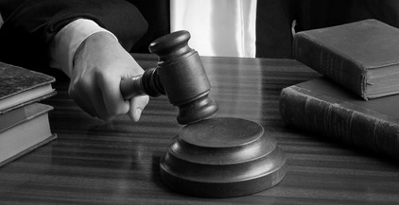Are we at risk of forgetting what freedom of expression means today?
The Paris terrorist attacks last month were primarily seen as an attack on freedom of speech. Millions attended the rally of national unity, and 40 world leaders were amongst the crowds remembering the victims and supporting the right to free...
The Paris terrorist attacks last month were primarily seen as an attack on freedom of speech. Millions attended the rally of national unity, and 40 world leaders were amongst the crowds remembering the victims and supporting the right to free speech.
Since then, freedom of speech has become an important topic of discussion, be it through pens held aloft at marches in support of Charlie Hebdo and the cartoons printed in memory of those killed, or through protests around the world by Muslims against images of their Prophet and suggestions that some leaders attending the Paris rally were hypocrites for quashing free speech in their own countries.
Perhaps the most challenging contribution to this debate came from Pope Francis, who said that freedom of speech and expression are fundamental rights but that “you cannot insult the faith of others”, adding that if a friend “says a curse word against my mother, he can expect a punch”. To many people, his stance was a contradiction to the very essence of free speech.
However, it is worth remembering that there is no absolute right to freedom of speech in the UK. Article 10 of the European Convention on Human Rights (incorporated into British law by the Human Rights Act 1998) provides for the right to freedom of expression subject to various conditions that are “in accordance with the law” and “necessary in a democratic society”.
Until recently, the law on defamation in England and Wales was so far-reaching that it helped generate tens of millions of pounds each year for the legal industry under what came to be known as ‘libel tourism’. Complainants from around the world could fight their cases at the High Court simply because the libellous comments were published on a website accessible in the UK. Libel tourism has now all but ended under the Defamation Act 2013.
Racial hatred is banned in Britain under the Public Order Act 1986, and some of the cartoons printed by Charlie Hebdo in the past may have been prohibited for stirring up racial hatred, even if that was never the intention. Religious hatred is also banned under the same act, although that hatred would need to be though threatening acts rather than just abusive or insulting, thus protecting the freedom of expression against religious beliefs and practices.
Add to the mix the laws prohibiting hatred on the ground of sexual orientation, the ban on glorification of or incitement to terrorism, indecency laws, restrictions on Court reporting, classified material, censorship of films and video games, injunctions, super-injunctions and much more besides, and it is plain to see that speech in the UK is anything but free.
Should there be complete freedom of speech, or should it come with limitations? Was the Pope right to say what he did, namely that we should respect what people hold dear and adjust our language out of courtesy to others? Most of us would probably agree that making jokes in poor taste after a tragic event should be avoided, even if we would never want a law to prevent it. If we exercise self-censorship, can we ever have free speech?
Some actions can have awful consequences, such as the deaths in Niger, but is it possible to lay blame at the door of those who have only printed a cartoon? Can an artist be held responsible for what is done as a result of his or her art? Can a religion be held responsible for what is done allegedly in its name? We should bear in mind that the 12th person killed by the gunmen was a Muslim policeman trying to defend the lives of artists who had ridiculed his faith.
Freedom of expression in modern British society has generally been based upon respect and politeness towards others and an acceptance of derision of public figures and the establishment, including religion. Until now, that has served us as a happy medium to strike – the balance between respect and ridicule, civility and satire.
In the age of social media, where instant reactions are encouraged and where ridicule is replaced by ever offensive and threatening language, our current legislation is probably more important than ever to help guide those parameters of acceptable free speech. Otherwise we may be at risk of forgetting what freedom of expression truly means in Britain today.
